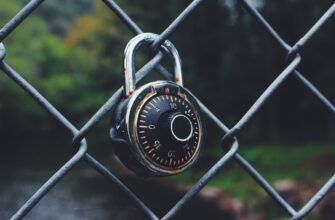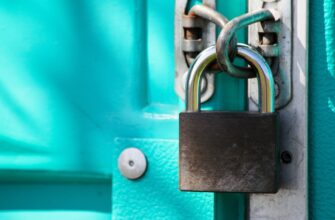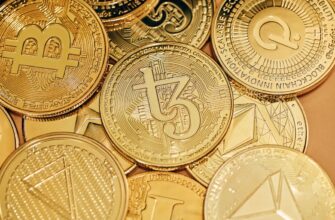- Introduction to Crypto Wallets in Vietnam
- What is a Crypto Wallet?
- Types of Crypto Wallets Explained
- Top 5 Crypto Wallets in Vietnam for 2024
- Choosing the Best Crypto Wallet in Vietnam
- Critical Security Tips for Vietnamese Users
- Legal Status of Crypto Wallets in Vietnam
- The Future of Crypto Wallets in Vietnam
- Frequently Asked Questions (FAQs)
Introduction to Crypto Wallets in Vietnam
Vietnam ranks among the world’s top adopters of cryptocurrency, with over 20% of the population owning digital assets. As blockchain technology surges, securing your investments with a reliable crypto wallet becomes essential. This guide explores Vietnam’s crypto wallet landscape, covering top choices, security best practices, legal insights, and future trends to help you navigate the market confidently.
What is a Crypto Wallet?
A crypto wallet is a digital tool that stores your private keys—unique codes granting access to cryptocurrencies on the blockchain. Unlike physical wallets, they don’t hold coins but enable sending, receiving, and monitoring assets. For Vietnamese users, selecting the right wallet balances accessibility with ironclad security.
Types of Crypto Wallets Explained
Understanding wallet categories helps match your needs:
- Hot Wallets: Internet-connected apps (mobile/desktop). Ideal for frequent traders. Examples: Trust Wallet, MetaMask.
- Cold Wallets: Offline hardware devices. Best for long-term holders. Examples: Ledger Nano X, Trezor.
- Custodial vs. Non-Custodial: Exchanges (like Binance) manage keys (custodial), while self-custody wallets (e.g., Exodus) give full control.
Top 5 Crypto Wallets in Vietnam for 2024
Based on security, local support, and Vietnamese user preferences:
- Trust Wallet: Mobile-first, supports 100+ coins, integrated DApp browser. Popular for its simplicity.
- MetaMask: Leading Ethereum wallet, perfect for DeFi and NFT enthusiasts.
- Ledger Nano S Plus: Affordable hardware wallet with Bluetooth support. Dominates cold storage.
- Binance Wallet: Seamless integration with Binance exchange, ideal for beginners.
- Coin98 Wallet: Vietnam-made super-app supporting multi-chain transactions and staking.
Choosing the Best Crypto Wallet in Vietnam
Evaluate these factors:
- Security: Prioritize non-custodial wallets with 2FA and open-source code.
- Supported Assets: Ensure compatibility with VND pairs and popular coins like BTC, ETH, or VN-specific tokens.
- Fees: Compare transaction costs—some wallets charge lower gas fees.
- User Experience: Vietnamese-language interfaces (e.g., Coin98) simplify navigation.
Critical Security Tips for Vietnamese Users
Protect your assets with these practices:
- Never share your 12-24 word recovery phrase—store it offline.
- Enable biometric authentication and two-factor authentication (2FA).
- Verify wallet addresses before transactions to avoid scams.
- Update software regularly to patch vulnerabilities.
- Use hardware wallets for holdings exceeding $1,000 USD.
Legal Status of Crypto Wallets in Vietnam
While Vietnam hasn’t legalized cryptocurrency as payment, owning and trading via wallets remains unregulated. The State Bank of Vietnam classifies crypto as “not legal tender,” but wallet usage faces no restrictions. Always declare earnings for tax compliance as authorities tighten oversight.
The Future of Crypto Wallets in Vietnam
Expect innovations like:
- Enhanced DeFi and Web3 integrations for staking and lending.
- Government-backed digital wallets exploring CBDCs.
- AI-driven security features to combat phishing.
- Mainstream adoption via partnerships with Vietnamese banks and e-pay apps.
Frequently Asked Questions (FAQs)
Q1: Are crypto wallets legal in Vietnam?
A1: Yes. While crypto isn’t legal tender, using wallets for asset storage/trading is permitted under current laws.
Q2: What’s the safest wallet for beginners in Vietnam?
A2: Trust Wallet or Binance Wallet—user-friendly with robust security and Vietnamese support.
Q3: Can I buy crypto directly with VND in wallets?
A3: Some wallets (e.g., Coin98) integrate VND on-ramps via bank transfers. Others require exchanging VND for stablecoins first.
Q4: How do I recover a lost wallet?
A4: Use your recovery phrase (seed words) to restore access. Never store it digitally—write it on paper.
Q5: Are hardware wallets worth the cost?
A5: Absolutely for significant holdings. They’re immune to online hacks, making them essential for long-term security.








